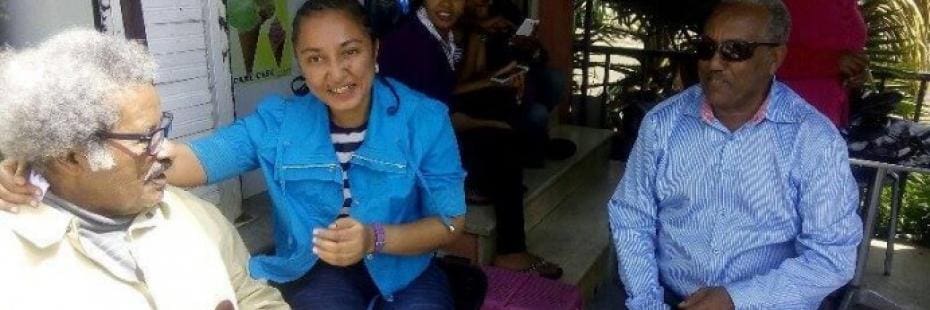On 9 July, Ethiopian journalist Reeyot Alemu was released from prison, a year ahead of her scheduled release date. She had been imprisoned since 2011, serving a sentence under Ethiopia’s infamous anti-terror laws.
Ms Alemu is an award-winning journalist who writes on topics such as government policy and spending, the lack of an independent media in Ethiopia and the mistreatment of minorities. She was arrested days after she published an article criticising Ethiopia’s ruling party and tried on trumped-up charges of supporting banned opposition groups. Among the charges, the Ethiopian prosecutors alleged that she “abused” her right to freedom of expression. During her trial, she was deprived of legal representation and she was eventually fined and sentenced to 14 years in prison for “terrorist activity”. The sentence was later reduced to five years.
Ms Alemu is just one of many journalists imprisoned for voicing opposition since the Anti-Terrorism Proclamation was introduced in 2009. The UN High Commissioner for Human Rights, the African Commission, and a number of UN special rapporteurs have all criticised the use of the overly broad and vague provisions of the Anti–Terrorism Proclamation such as “encouraging terrorism” to imprison journalists, opposition party members and other dissenting voices. In 2011, more journalists went into exile from Ethiopia than from any other country. Those imprisoned face conditions of detention that fail to meet basic human rights standards. The day before Reeyot’s release, a number of bloggers were also released.
While in prison, Ms Alemu experienced problems with her health and she received grossly inadequate medical care. In April 2012, she underwent surgery, without anesthesia. Prison authorities subsequently failed to provide appropriate aftercare, thereby jeopardizing her health by putting her at increased risk of infection and disease. Further inadequacies in the medical treatment provided by the prison authorities exacerbated Ms Alemu’s condition.
Ms Alemu has appealed to the African Commission on Human and Peoples’ Rights arguing that her conviction and imprisonment under Ethiopia’s anti-terror laws for alleged terrorist activity violates her right to freedom of expression and to a fair trial. Her petition, filed on behalf of Ms Alemu and her fellow Ethiopian journalist Eskinder Nega by MLDI’s Legal Director, Nani Jansen, and Patrick Griffith of Freedom Now, also argues that the failure to provide adequate medical care violates her right to health.
MLDI’s Legal Director, Nani Jansen, said that, “We’re grateful for Ms Alemu’s release as it means she can finally receive the medical treatment she desperately needs. We will, however, proceed with the case at the African Commission, because it remains a fundamental truth that critical comment on political matters should never be considered as support or encouragement of terrorist activity.”
Recent News
Landmark Ruling: Kenya’s High Court Declares Colonial-era Subversion Laws Unconstitutional
Media Defence welcomes the verdict of the High Court in Nakuru, striking down sections of the Kenyan Penal Code which criminalise subversion, citing them as relics of colonial oppression that curtail freedom of expression. Justice Samwel Mohochi, delivering the judgment, asserted that these provisions were overly broad and vague, stifling dissent rather than serving any […]
UN Rapporteurs Call for Protection of Brazilian Journalist Schirlei Alves
UN Rapporteurs Call for Protection of Brazilian Journalist Schirlei Alves Amid Defamation Charges Stemming from Rape Trial Coverage A letter dispatched by UN rapporteurs to the Brazilian Government calls for protective measures for women journalists covering cases of sexual crimes. The letter also denounces the conviction of Brazilian investigative journalist and women’s rights defender, Schirlei […]
Convite à apresentação de candidaturas: Cirurgia de litígio em português na África Subsariana
Cirurgia de litígio em português na África Subsariana Aplique aqui 23 a 25 de julho de 2024 em Nairobi, Quénia Prazo: 3 de maio A Media Defence está a convidar advogados sediados na África Subsariana que falem português a candidatarem-se a participar numa próxima cirurgia de litígio sobre o direito à liberdade de expressão e […]



